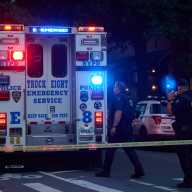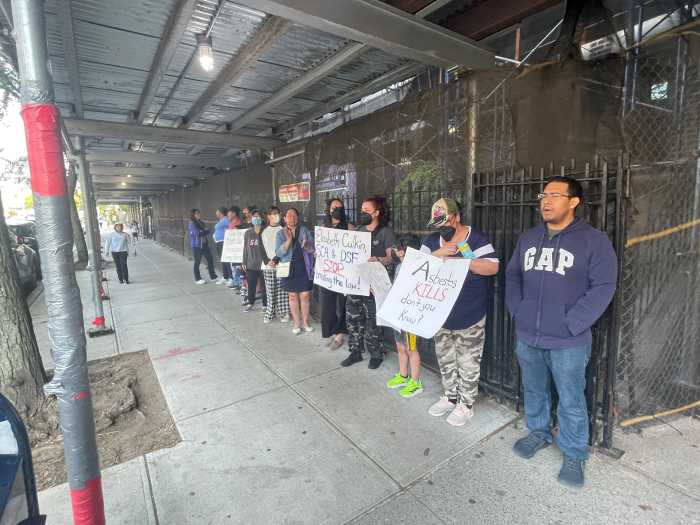By Patrick Hedlund
Lost in the mail
The U.S. Post Office’s Soho branch is one of three in Manhattan slated to close as part of new cutbacks initiated by the postal service.
The branch, located on Prince St. between Greene and Mercer Sts., joins one in Columbus Circle and another in Washington Heights that will shutter by the summer due to the economic downturn.
“This is part of this drastic cutback that’s occurring in the postal service,” said Chuck Zlatkin, a postal union official, adding that the U.S.P.S.’s practice of pre-funding future retirees’ health benefits has contributed to the shortfall. “To me it’s pennywise and pound foolish by the postal service. … What’s the fallout [from the eliminations] locally and economically?”
Although the Soho Alliance recently ran a story in its newsletter about unfavorable conditions at the Prince St. branch, director Sean Sweeney still considers it an unfair loss for the community.
“We don’t have a police station, we don’t have a fire station, we don’t have a house of worship, we don’t have a school,” Sweeney said, noting that tourists, nearby businesses and the many residents who work out of their lofts will suffer because of the closing. “There’s a lot of commerce here, and it’s unconscionable for the postal service to do this.”
In addition, Community Board 1’s Paul Hovitz tells us he heard from Peck Slip postal workers recently that the long-rumored plans to sell the Seaport branch was practically a done deal.
Zlatkin, for his part, said he had heard the Peck Slip talk awhile back but had not heard anything recently. It would probably be tough to sell the building now.
The U.S.P.S. did not return a request for comment as of press time.
Anti-harassment anniversary
City Council Speaker Christine Quinn gathered with fellow colleagues and Downtown residents this week to mark the one-year anniversary of the Council’s passage of the Tenant Protection Act, which created a host of new safeguards for tenants targeted for eviction by landlords.
Rafael Cestero, the new commissioner of the city’s Department of Housing Preservation and Development, Councilmember Rosie Mendez and a group of Chinatown residents and advocates joined Quinn at City Hall on Monday to explain how the new legislation has helped tenants find legal redress for various forms of harassment imposed by landlords.
“We’re here today to mark this because, although we know that most landlords in our city are treating their tenants well, there are some [tenants] who had to bear terrible, terrible harassment at the hands of their landlords,” Quinn said. “Just unimaginable treatment.”
In addition to the more standard forms of tenant harassment, including landlords turning off heat and hot water and pursuing frivolous eviction lawsuits against residents, Quinn highlighted one case in Brooklyn where a landlord left a bag of dead cats in a vacant apartment to stink up the building.
A group of about 25 working-class Chinese and Latino tenants living at 55 and 61 Delancey St. filed a harassment lawsuit after their landlord called the police to disrupt tenant meetings, stopped accepting rent checks and tried to pursue eviction proceedings, and even ordered tenants to remove Chinese cultural decorations from their doors.
“These are tenants who faced a long history of harassment beginning more than a decade ago,” said Esther Wang, of the Committee Against Anti-Asian Violence and the Chinatown Tenants Union. When the harassment continued following a recent purchase of the two buildings, Wang explained, the tenants worked with the Urban Justice Center to file a lawsuit against the new landlord, who also left gaping holes in tenants’ ceilings from construction work.
Quinn said that since the inception of the legislation, there have been 90 rulings forcing landlords to make repairs or pay penalties and 33 rulings stating harassment had occurred.
With reporting by Josh Rogers and Julie Shapiro
































